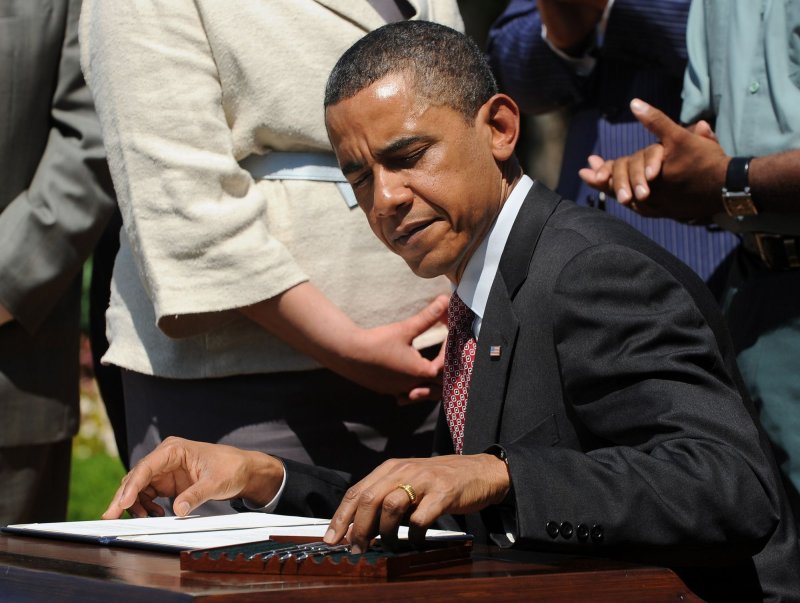U.S. President Barack Obama signs a Presidential Memorandum outlining the next steps in his vision for cleaner, more efficient vehicles in the Rose Garden of the White House in Washington on May 21, 2010. UPI/Roger L. Wollenberg |
License Photo
DETROIT, March 30 (UPI) -- U.S. automobile industry lobbyists say new rules on fuel efficiency are pushing cars beyond what customers are demanding, which may lead to layoffs.
Rebecca Lindland, at industry consulting firm IHS Automotive said, "Automakers are trying to tell Washington: 'You need to pay attention to what consumers are demanding,'" The Detroit News reported Wednesday.
As the industry gears up to confront new fuel efficiency standard proposals this summer, the Alliance of Automobile Manufacturers said pushing standards too far too fast was "likely to be significantly more expensive" than the recent agreement which set the bar at 34.1 miles per gallon by 2016.
"If consumers do not buy the vehicles that manufacturers are required to produce, sales will fall, production will slow and manufacturers will be forced to eliminate jobs," the association said.
Industry officials and trade group representatives say automakers want to cooperate with forming new regulations, but fear pushing too fast could derail sales. "We plan to be collaborators, not opponents," said General Motors Co. vice president of global design Ed Welburn.
On the other hand, GM spokesman Greg Martin said, "We will not sit on the sidelines while our competitors in other industries have their voices heard."
The National Highway Traffic Safety Administration and the Environmental Protection Agency are expected to ask for a 3 percent to 6 percent increase in fuel efficiency per year from 2017 through 2025.
By then, if the proposals hold, fuel efficiency for highway driving would average 62 mpg, adding $770 to $3,500 to the cost of a vehicle, the newspaper said.










